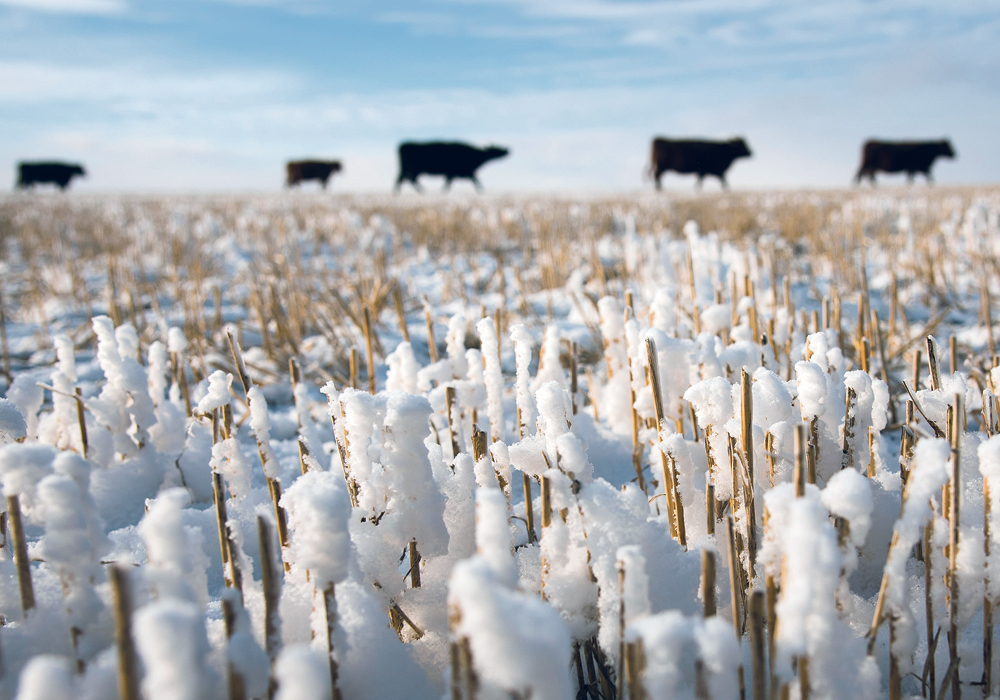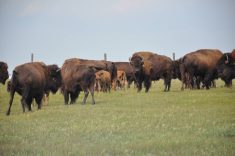Food policy professor says industry could have worked with restaurant chain to produce ‘certified humane’ beef
BRANDON — When Sylvain Charlebois began talking about the Earls restaurant chain, the audience of cattle producers inside the conference room became almost silent.
In 2016, Earls announced a change in the type of beef sold at its restaurants. It was shifting to a “certified humane” program, where Earls would buy beef from ranches in the United States that met certain standards for animal welfare.
The decision was not popular. Canadian beef producers hammered Earls, saying “certified humane” beef was offensive because it insinuated that Canadian cattle farmers were unethical and their treatment of animals was substandard.
Read Also

Trump’s tariffs take their toll on U.S. producers
U.S. farmers say Trump’s tariffs have been devastating for growers in that country.
Less than a week after the announcement, Mo Jessa, president of Earls, made a public apology. He dropped the plan and vowed to buy Canadian beef, even though there wasn’t a sufficient supply of certified humane beef in Canada.
Charlebois, a Dalhousie University professor who specializes in food policy and food distribution, said Earls’ decision to back away from the “certified humane” program was a mistake for Earls and for Canada’s beef industry.
“I think the first decision was a sound one, an important one. The second (backing down) was a bit of a mistake,” said Charlebois, who was in Brandon in early February to speak at the Manitoba Beef Producers annual general meeting.
“You had an important business person, running an important restaurant chain, making a decision to get the product that his chain needed…. We could have actually grabbed this moment … to recognize the consumer is looking for different things. It’s not just (about) a juicy T-bone.”
The food industry, including the beef sector, is not what it used to be.
The market has broken up into many small segments, where people in a particular segment want food with certain attributes. One of those segments could be people who eat meat, but only if the farm animals are treated humanely.
“The market is not a monolith,” said Rene Van Acker, dean of the Ontario Agricultural College. “(And) the problem is when the market is not a monolith, you may have to be doing this and that and everything in between.”
Instead of condemning Earls, Canada’s beef industry could have worked with the restaurant chain to supply the humanely raised beef that customers were asking for, Charlebois said.
The beef sector rejected the Earls’ model, but it has developed its own certification program for consumers who want sustainable beef.
In December 2017, the Canadian Roundtable for Sustainable Beef (CRSB) launched its Certified Sustainable Beef Framework.
The certification program is based on five principles: natural resources, people and community, animal health and welfare, food, and efficiency and innovation.
A number of restaurants are members of the program and they’re using the CRSB verification logo on their menus.
One of those restaurants is Cactus Club, where 40 percent of the steak and beef sold is CRSB certified.
Carl Dean, vice-president of purchasing with Cactus Club, said he’s proud to participate in the CSRB. But the beef industry needs to promote its sustainability story.
“I feel very strongly that the beef industry has been very silent on this (issue),” he said, adding most Cactus Club customers have never heard of sustainable beef. “I don’t think the story is being told, at all.”
Dean wants to be part of the solution.
He has joined two committees at the CSRB and is determined to get the word out.
“I feel strongly that the industry needs to have (a louder) voice.”
















